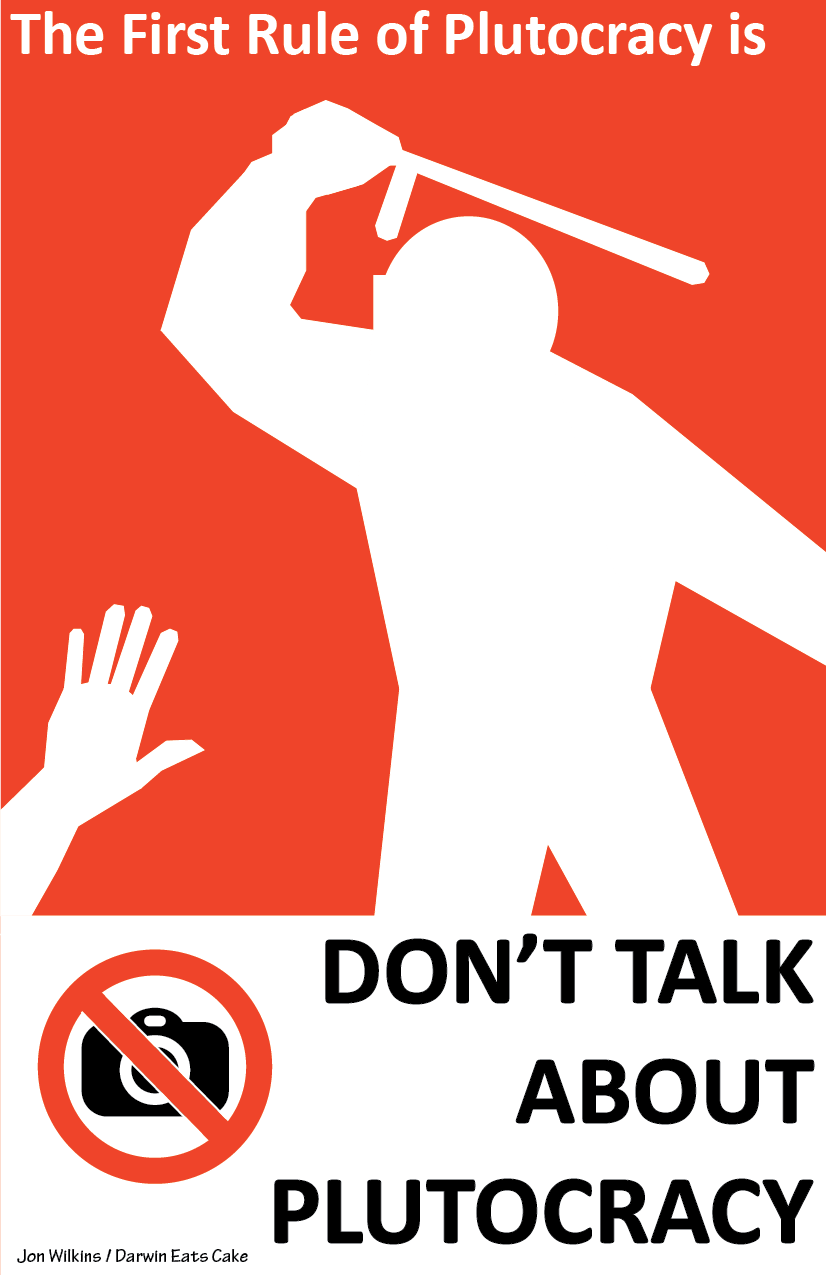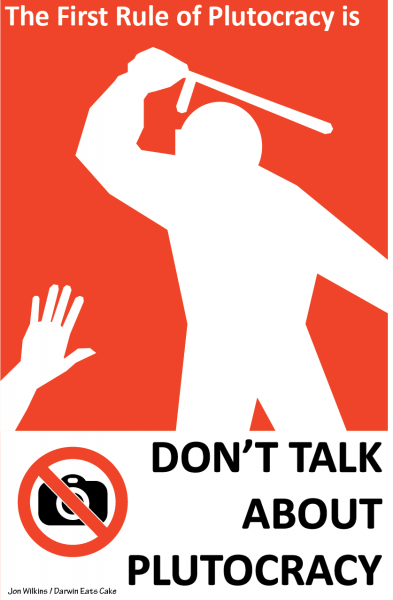Last month an Oxfam report revealed that the world`s 85 richest people have as much wealth as the poorest 3.5 billion, about half of all human beings on the planet. These horrendous numbers would not have gone unnoticed at Davos, a Swiss alpine resort which recently hosted the World Economic Forum (WEF).
Reportedly, attendees were mouthing the word `inequality` on more than a few occasions. All talk of course, but a sure sign that wealthy elites are a little worried. We should be too, but some analysis is needed first. Who are these uber-rich people? How do they rule the world? And, how does the World Economic Forum fit in?
In response to the first question we can answer; – executives and major shareholders of the transnational corporation. They have investments, properties and workforces throughout the world. Their executive boards are cross-national rather than national. And, they have grown enormously over the last two decades, especially in relation to economic activity as a whole. In 2000 the 500 largest transnational corporations controlled approximately 80 per cent of the world`s foreign investment, 30 per cent of global output and 70 per cent of world trade. Since then transnational corporate investment has been drawn to the urban-industrial growth poles of south and east Asia. The emergence of China as a world epicentre of low-cost manufacturing at the expense of large western economies provided new profit opportunities for transnational corporations.
The transnational corporate sector is dominated by financial interests. In a recent article from a book entitled Financial Elites and Transnational Business (2012), David Peetz and Georgina Murray analyse the trend. From a sample of 299 very large companies they categorise the institutional investors with significant cross-company shareholdings. Out of the total amount of share assets 30 per cent were held by individual entrepreneurs, families, industrial companies, public authorities and state organisations. A whopping 68 percent of share assets were held by financial interests i.e banks,finance companies, insurance companies, mutual and pension funds, private equity firms, hedge funds, venture capital (2 percent of assets were classed as `other`). These interests shape the rates, margins and concentrations of profit throughout the transnational corporate sector.
How on earth did this happen? Well, there are two short answers here, neoliberalism and technology. As the New Zealand experience shows, deregulation, privatisation and corporate welfare makes the transnationals larger and stronger in relation to the national economy. Just as importantly, the digitalisation of print, speech, data and audio-visual materials has enabled the convergence of computer processing, telecommunications and mass media technologies. Consequently, high-speed electronic networks exemplified by internets, intranets, mobile telephony and the televisual screen enabled the globalisation of financial flows, production networks and marketing strategies. The consequences of this are massive. In the 21st century capital and capitalists are no longer organised primarily on a national basis. Competition between national economies still occurs but its not the biggest game in town. Now, transnational corporations are able to slice through national economies and play nation states of against each other.
This leads to another question – how do transnational capitalists keep these arrangements in place? Or, to put this question another way, how do the rulers of the world rule? They do it through a loose network of power which William Robinson has called the transnational state. It incorporates policy development organisations such as the International Chamber of Commerce (ICC), the Trilateral Commission (TC), the Bilderberg group, the World Business Council for Sustainable Development (WBSCD) and, of course, the World Economic Forum (WEF). Together, these organisations constitute a cultural milieu of financiers and corporate executives who, selectively, invite in major government leaders, non-government organistions (NGOs), leading intellectuals and `try hard ` celebrities such as Sting and Bono.
Transnational policy research groups frame the operations of international institutions such as the European Union (EU), G8, G10, the Organisation for Economic Cooperation and Development (OECD), World Bank, IMF and the Bank of International Settlements (BIS). Crucially, the transnational state network also includes the executive reaches of those national governments which have caved in to neoliberalism. Office holders within finance ministries, policy advice groups and the senior civil service work to match national economic priorities to the demands of global finance and transnational corporations. The collusive workings of transnational political power are displayed annually at the World Economic Forum at Davos. Back in 2004 Michael Hardt And Antonio Negri explained exactly what Davos was all about. In their book Multitude you will find the following extract, read it carefully…
`We can see clearly the need for leaders of major corporations to negotiate and co-operate with the political leaders of the dominant nation states and the bureaucrats of the supra-national economic institutions. And there too we can see that the national and global levels of political and economic control do not,in fact ,conflict with each other but actually work together hand in glove. At Davos,in short,we can see the institutional relationships that support and regulate the global political and economic system.`
How, then, do we challenge this appalling state of affairs? The answer to that question will be the subject of another blog. In the meantime feel free to comment on this piece.







“Together, these organisations constitute a cultural milieu of financiers and corporate executives who, selectively, invite in major government leaders, non-government organistions (NGOs), leading intellectuals……….”
Something I’ve been banging on about for a couple of decades after having noticed the change in the public service since Roger and Co began practicing his religion. It goes HAND-in-HAND with the corporatisation of the public service.
The great promise (lie) of that corporatisation was the ‘efficiency and effectiveness mantra’, greater transparency and accountability.
Instead we’ve had exactly the opposite with little fiefdoms headed by corporate style CEOs in which purchase agreement style cost accounting is the measure of the day, and in which public servants struggle with their upper-managerial echelon – working in spite of them rather than because of them; taking the blame for their failings whilst they take kudos for any successes.
De-corporatise our public service
The nominally Aucland Council owned “CCOs” would seem to be part opf this whole structure of removing publicly owned entities (especially profitable ones) and corporatising them.
The fact that Tony Gibson (POAL) and Brett O’Riley (ATEED) boith work for a democratically-elected body – and yet have joined a corporate group whose main interests are “that the voice of employers is considered in the many new programmes and policies being developed by Local and Central Government” , should alert us that Wayne’s blogpost of events is vary much happening here in NZ. Even at a local level.
See: https://thedailyblog.co.nz/2014/01/31/falls-the-shadow-everything-you-didnt-know-about-the-committee-for-auckland/
For many people, I suspect that Wayne’s picture of the world we live in, once the smoke and mirrors are cleared away, is both depressing and seemingly hopeless.
I, on the other hand, see yet another reason why we have only one weapon left in the struggle against the corporatisation of human civilisation; the vote. It is the one thing that corporate, governmental, and bureaucratic interests cannot take away (as long as we do not permit them).
The vote, along with consciousness-raising, is our long-term defence against the financial-political oligarchy that is taking over human civilisation.
Is it any wonder why Key expends so much time attacking Hone Harawira and the Mana Party, and why National’s coterie of female political harpies has chosen to attack Metiria Turei on a perceived “vulnerability”?
Because the left still poses more of a threat to the growing oligarchy than we realise.
Wayne referred to high-speed electronic networks exemplified by internets, intranets, mobile telephony and the televisual screen enabl[ing] the globalisation of financial flows, production networks and marketing strategies.
Like any tool (or weapon), it can also be used by opponants. That be us.
And because the rest of the world outnumbers the oligarchy, they live in fear every day that the left will be more and more successful in spreading the message. Especially, ironically, as the oligarchy’s success grows, resentment also increases.
We have not yet begun to fight, as someone once said…
“I, on the other hand, see yet another reason why we have only one weapon left in the struggle against the corporatisation of human civilisation; the vote.”
There is in fact another, and it is far more powerful: labour. No one FORCES you to engage in any economic activity that enriches the corporate elites. Governments can only tax what YOU WILLINGLY earn – no income, no taxes. Bereft of taxes and labour both governments AND corporations would collapse in a matter of weeks – no voting required to enact change whatsoever, it would be forced on them to listen.
I think we as countries need to take back our countries become self sufficient as culture we seem to have lost this. It seems these bis corporations have made us become dependent on them for our 4 basic needs. We need to take our identities back as cultures as people for our children to have a future. Governments around the world have become just porn’s now for these big corporate companies. How we do this no idea sorry
That is exactly what they’ve done and they’re doing everything in their power to keep it that way.
It’s the old he who pays the piper, isn’t it? Nothings changed, ever
“Last month an Oxfam report revealed that the world`s 85 richest people have as much wealth as the poorest 3.5 billion,”
…sounds like China before they started down the pathway to a capitalist economy.
Government here in NZ had to overturn the Treasons Act in 1983 to begin the process of State Asset Sales this was an orchestrated move by the bankrupt pigfarmer and his cronies.
Winston tried to bring it to the country’s attention with the Wine Box Enquiry and the collapse of the BNZ however the old boys establishment and the media destroyed him.
There was sinister activity going on however a majority of NZers do not see the big picture.
The destruction of wealth in NZ has been staggering, we have destroyed our major companies and sold virtually all our State Assets and we now have record levels of overseas debt $70 Billion.
Have a think about it and go figure.
9 – 10 years ago when asked, I would have said by 2014 we would be walking and maybe eating each other (and not in a nice way)
So maybe the fact there is some sort of organized cartel running this fucked up system is a positive thing? , as they and their manipulations are ‘for most NZers’ doing us a favor, well us that can still afford the internet anyway?
I mean Labour think all is going to be rosy for the life time of most children to be born over the next 3-4 years, so much so they want people to have babies?????????
So thanks to the people who keep most of ‘us’ ignorant and uninformed, at least the hot water is still there when I turn the tap on.
Ummm, no. Not thanks to them at all, but thanks to superhuman efforts by most of society to bring water, power, and sanitation to all houses. If you lived in a society where these people had their way, only the rich would have roads, footpaths, and sewerage. Have a look at India, Brazil, Bolivia, or Somalia. What we get is despite the plutocracy, not because of them.
[…] My last blog sought to answer two questions. Who rules the world and how do they do it? […]
Comments are closed.